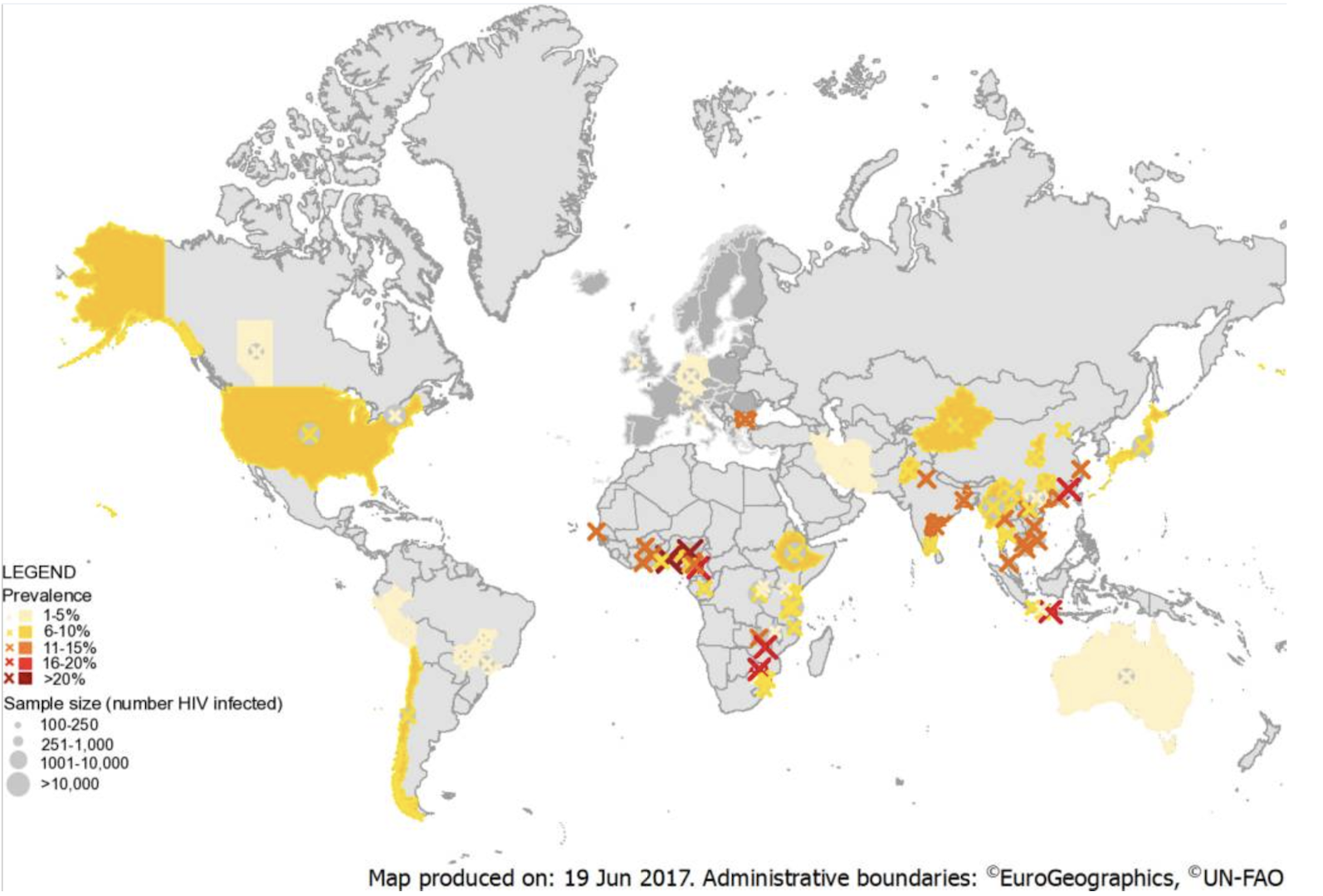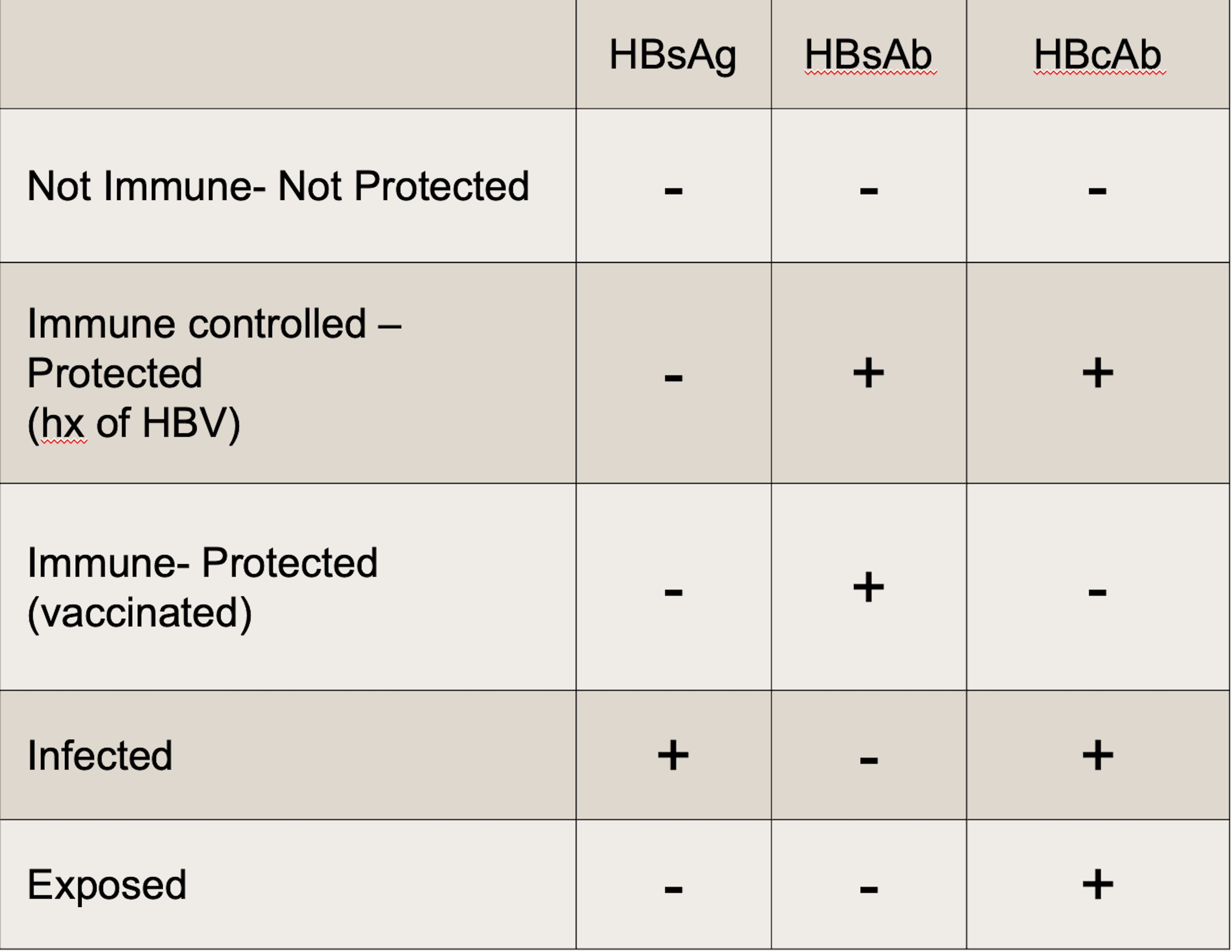Tuesday Poster Session
Category: Infections and Microbiome
P5635 - Viral Sabotage: HBV Reactivation in the Shadow of HIV
Tuesday, October 28, 2025
10:30 AM - 4:00 PM PDT
Location: Exhibit Hall

Elizabeth Armstrong, MD (she/her/hers)
Atrium Health Wake Forest Baptist
Winston-Salem, NC
Presenting Author(s)
Elizabeth Armstrong, MD, James Miller, MD, Zachary Mitchell, MD, Jacqueline Lippert, MD
Atrium Health Wake Forest Baptist, Winston-Salem, NC
Introduction: This is a case report of a 57 year old gentleman who presented to a tertiary medical center in acute liver failure due to reactivation of hepatitis B virus (HBV) after not taking his Symtuza (darunavir/cobicistat/emtricitabine/tenofovir alafenamide) for four months. This case highlights the importance of adhering to antiretroviral therapy (ART) in the setting co-infection with HBV and HIV and the consequences when not doing so. It also highlights successful medical management of acute liver failure without consulting a liver transplant center. Hepatitis reactivation typically occurs in patients who are incompletely treated or immunocompromised due to chemotherapy or other immunosuppressive agents. Acute reactivation can present with symptoms of acute liver failure if severe. It is more rare for reactivation to occur in patients who were fully treated and “resolved”, with negative HBsAg.
Case Description/
Methods: We present a case of a 74yo male with history of well controlled HIV on ART, treated hepatitis B and C, and epilepsy who presented with increased seizure frequency with unrelenting post-ictal-like state of decreased arousal, confusion, and falls. Initial labs revealed AST > 5,000, ALT 5,612, Total Bilirubin 6.1, ALP 144, Platelets 101, INR 2.1, Ammonia 130. Patient was admitted to the general medicine floor at a tertiary medical center for medical management of acute liver failure. Reactivation of HBV was identified with seroconversion to positive HBsAg from negative 2 years prior, positive HBcAg, negative HBeAg, and viral load 79 million. 4 month ART non-compliance, unknown to care-givers, was identified by prescription fill history and evidenced by increased HIV viral load (49,000) and decreased CD4 count (344) compared to 4 months prior. Treatment with Biktarvy and lactulose was initiated, and within 6 days, hepatic function recovered and mental status improved to baseline.
Discussion: HIV medication has antiviral effects on HBV, when HIV antiretroviral therapy is stopped HBV can become reactivated. This case is unique in it's presentation of seizures in the setting of acute reactivation of HBV, timely initiation of antiviral treatment in acute hepatitis with successful recovery despite poor prognosis, and management options for acute liver failure at a tertiary medical center.

Figure: Prevalence of Chronic Hepatitis B Virus Among HIV

Figure: Understanding Hepatitis B Serology
Disclosures:
Elizabeth Armstrong indicated no relevant financial relationships.
James Miller indicated no relevant financial relationships.
Zachary Mitchell indicated no relevant financial relationships.
Jacqueline Lippert indicated no relevant financial relationships.
Elizabeth Armstrong, MD, James Miller, MD, Zachary Mitchell, MD, Jacqueline Lippert, MD. P5635 - Viral Sabotage: HBV Reactivation in the Shadow of HIV, ACG 2025 Annual Scientific Meeting Abstracts. Phoenix, AZ: American College of Gastroenterology.
Atrium Health Wake Forest Baptist, Winston-Salem, NC
Introduction: This is a case report of a 57 year old gentleman who presented to a tertiary medical center in acute liver failure due to reactivation of hepatitis B virus (HBV) after not taking his Symtuza (darunavir/cobicistat/emtricitabine/tenofovir alafenamide) for four months. This case highlights the importance of adhering to antiretroviral therapy (ART) in the setting co-infection with HBV and HIV and the consequences when not doing so. It also highlights successful medical management of acute liver failure without consulting a liver transplant center. Hepatitis reactivation typically occurs in patients who are incompletely treated or immunocompromised due to chemotherapy or other immunosuppressive agents. Acute reactivation can present with symptoms of acute liver failure if severe. It is more rare for reactivation to occur in patients who were fully treated and “resolved”, with negative HBsAg.
Case Description/
Methods: We present a case of a 74yo male with history of well controlled HIV on ART, treated hepatitis B and C, and epilepsy who presented with increased seizure frequency with unrelenting post-ictal-like state of decreased arousal, confusion, and falls. Initial labs revealed AST > 5,000, ALT 5,612, Total Bilirubin 6.1, ALP 144, Platelets 101, INR 2.1, Ammonia 130. Patient was admitted to the general medicine floor at a tertiary medical center for medical management of acute liver failure. Reactivation of HBV was identified with seroconversion to positive HBsAg from negative 2 years prior, positive HBcAg, negative HBeAg, and viral load 79 million. 4 month ART non-compliance, unknown to care-givers, was identified by prescription fill history and evidenced by increased HIV viral load (49,000) and decreased CD4 count (344) compared to 4 months prior. Treatment with Biktarvy and lactulose was initiated, and within 6 days, hepatic function recovered and mental status improved to baseline.
Discussion: HIV medication has antiviral effects on HBV, when HIV antiretroviral therapy is stopped HBV can become reactivated. This case is unique in it's presentation of seizures in the setting of acute reactivation of HBV, timely initiation of antiviral treatment in acute hepatitis with successful recovery despite poor prognosis, and management options for acute liver failure at a tertiary medical center.

Figure: Prevalence of Chronic Hepatitis B Virus Among HIV

Figure: Understanding Hepatitis B Serology
Disclosures:
Elizabeth Armstrong indicated no relevant financial relationships.
James Miller indicated no relevant financial relationships.
Zachary Mitchell indicated no relevant financial relationships.
Jacqueline Lippert indicated no relevant financial relationships.
Elizabeth Armstrong, MD, James Miller, MD, Zachary Mitchell, MD, Jacqueline Lippert, MD. P5635 - Viral Sabotage: HBV Reactivation in the Shadow of HIV, ACG 2025 Annual Scientific Meeting Abstracts. Phoenix, AZ: American College of Gastroenterology.
